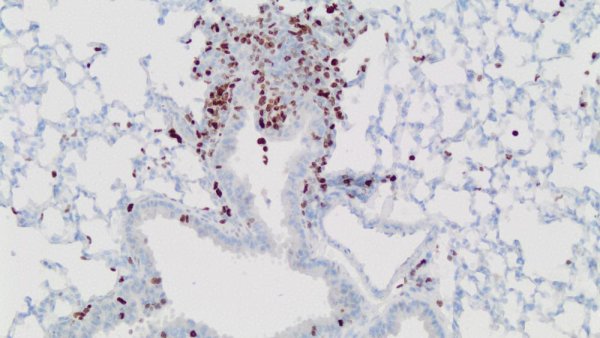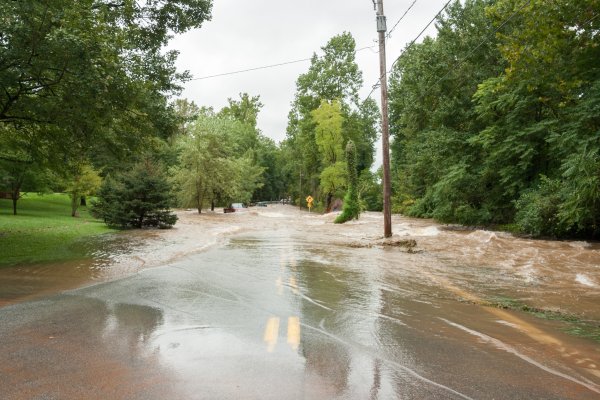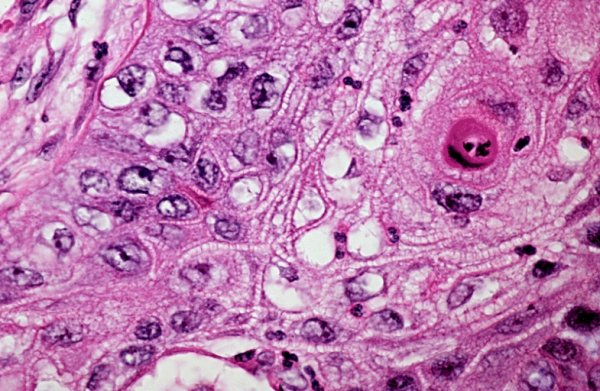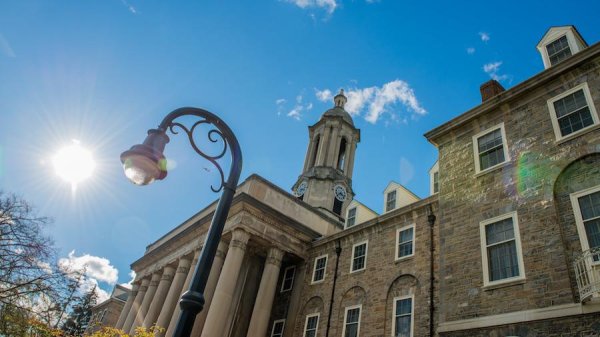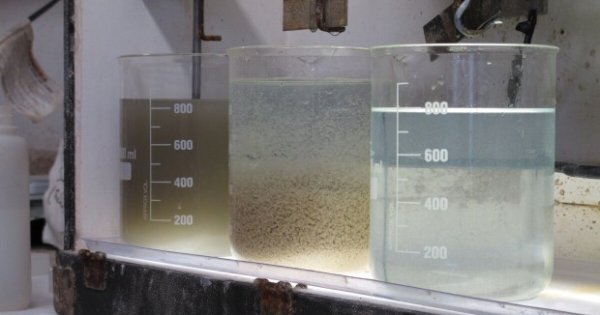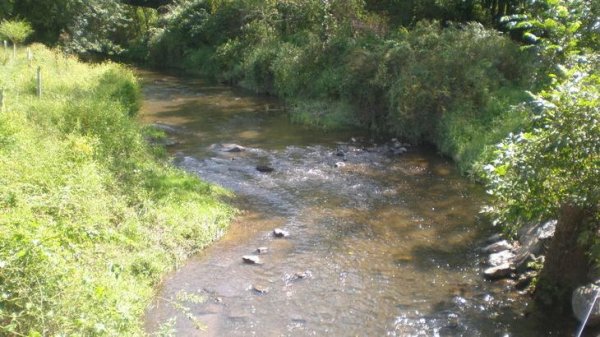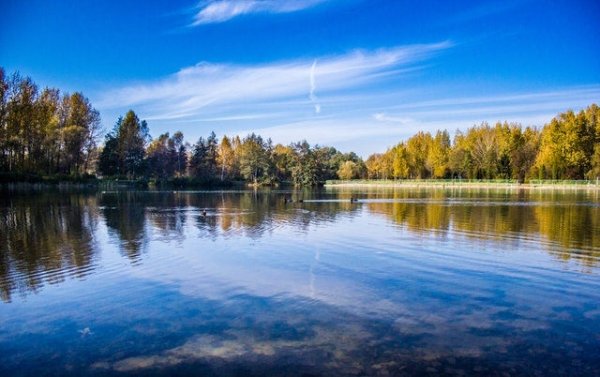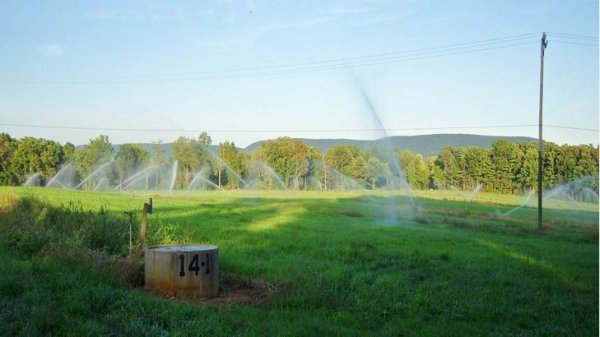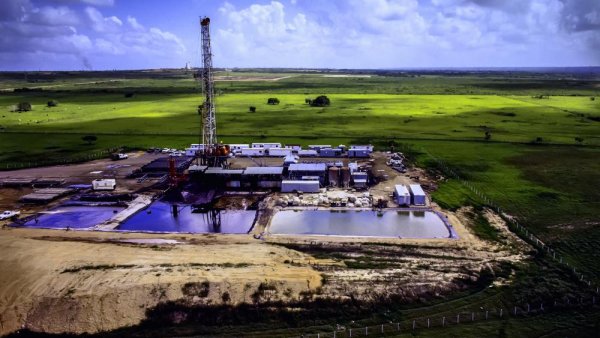IEE faculty, staff, and projects in the news
Penn State launches new cancer biology program
| psu.edu
Penn State is launching a new program dedicated to cancer biology. The program will focus on the molecular, cellular and translational aspects of cancer.
Mentions
Varadero, a story about a resilient reef in Colombia's Bay of Cartagena
| bodhisurfyoga.com
Learn more about the Varadero Reef in the Bay of Cartagena in Colombia and its story of ecological resilience in the face of climate change and other environmental crises.
Report addresses flooding and flood insurance impacts on rural Pennsylvania
| news.psu.edu
A newly released report examines how flooding and recent changes to the federal flood insurance program are impacting rural Pennsylvania in unique ways.
Mentions
Pathway's power to boost, halt tumors may be promising cancer therapy target
| news.psu.edu
A protein may be a key part of a complex molecular cascade that can both cause and inhibit tumors in certain types of cancer, including skin and lung cancers. Penn State researchers suggest that understanding the basic biology of cancer can help the future design of anti-cancer therapies that attack cancer, but leave healthy cells alone.
Mentions
New evidence of contaminants from fracking
| cmaj.ca
New evidence has emerged indicating that wastewater from fracking contains compounds harmful to human health. Fracking, a controversial technique for extracting oil and gas, involves injecting a water mixture deep into the ground to force open existing fissures. The process produces wastewater
Mentions
Seed Grant Projects
Institutes of Energy and the Environment seed grant recipients announced
| psu.edu
The 2017 Institutes for Energy and the Environment seed grants have been awarded to a pool of interdisciplinary researchers at Penn State. Thirteen grants totaling more than $312,000 have been awarded to 42 researchers that addressed four research themes: Climate and Ecosystem Change, Future Energy Supply, Smart Energy Systems, and Water and Biogeochemical Cycles.
Mentions
-
William Burgos
-
Frank Dorman
-
Terry Kreiser
-
George Perry
-
Douglas J. Kennett
 Douglas J. KennettFormer Professor and Department Head, Department of Anthropology
Douglas J. KennettFormer Professor and Department Head, Department of Anthropology -
Katherine Freeman
-
Brendan Culleton
-
Guangqing Chi
-
Brian Thiede
-
Zhen Lei
-
Erica Smithwick
-
Junjun Yin
-
Rachel Brennan
-
Joshua D. Lambert
-
Armen Kemanian
-
Felipe Montes
-
Roman Engel-Herbert
 Roman Engel-HerbertFormer Associate Professor, Materials Science and Engineering
Roman Engel-HerbertFormer Associate Professor, Materials Science and Engineering -
Zhiwen Liu
-
Jennifer Macalady
-
Mónica Medina
-
Christopher Gorski
-
Ismaila Dabo
 Ismaila DaboFormer Corning Faculty Fellow Associate Professor of Materials Science and Engineering
Ismaila DaboFormer Corning Faculty Fellow Associate Professor of Materials Science and Engineering -
Jennifer Baka
Associate Professor and John T. Ryan, Jr. Faculty Fellow, College of Earth & Mineral Sciences -
Kathryn Brasier
-
Nathaniel Warner
-
Fred Cannon
-
Marek Flaska
-
Amanda Johnsen
-
Sridhar Komarneni
-
Margaret Brittingham
 Margaret BrittinghamFormer Professor, Ecosystem Science and Management
Margaret BrittinghamFormer Professor, Ecosystem Science and Management -
Matthew Fantle
-
Seth Blumsack
-
Chiara Lo Prete
Associate Professor, John and Willie Leone Department of Energy & Mineral Engineering (EME) -
Nilanjan Ray Chaudhuri
-
Carter Hunt
-
Leland Glenna
-
Roberto Iglesias-Prieto
-
Frederic Joseph Pollock
-
Alexander Hristov
-
Robert Meinen
-
Tara Felix
-
Kenneth Davis
-
Tom Richard
Seed Grant Projects
Natural gas industry wastewater pollution may linger for years
| wesa.fm
A new study finds the treated wastewater from Pennsylvania’s natural gas industry may pollute rivers, lakes, streams and creeks for longer than previously…
Mentions
Seed Grant Projects
Researchers receive USDA grant to study new riparian buffer strategy
| psu.edu
A team led by researchers in Penn State's College of Agricultural Sciences has received a nearly $500,000 grant from the U.S. Department of Agriculture to conduct a three-year study of a new flexible strategy to ramp up installation of riparian buffers.
Mentions
Fracking pollution stays in waterways long after the fracking is done
| popsci.com
Dumping fracking water into rivers, lakes, and streams can cause lasting environmental damage, according to a recent study in the journal Environmental Science and Technology—even if you treat it first.
Mentions
Seed Grant Projects
Soil filters out some emerging contaminants before reaching groundwater
| psu.edu
There is considerable uncertainty surrounding emerging contaminants in aquatic ecosystems and groundwater, and a recent Penn State study of compounds from pharmaceuticals and personal care products didn't add much clarity. But it did provide insight into the transport of the chemicals, according to researchers in the College of Agricultural Sciences.
Mentions
Workshop provides practical science communications training for researchers
| psu.edu
In order to help faculty members and researchers improve their science communication skills, the Institutes of Energy and the Environment is offering training through COMPASS, an organization that was founded to help scientists share their knowledge in a way that effectively communicates their message to the general public but doesn’t compromise the accuracy of the science. The training takes place on Oct. 4–6 and is open to Penn State faculty and graduate students. There is no cost to attend.
Mentions
Treated hydraulic fracturing wastewater may pollute area water sources for years
| psu.edu
Given Pennsylvania’s abundant natural resources, it’s no surprise that the Commonwealth has become a mecca for hydraulic fracturing. Researchers, however, have recently discovered that releasing millions of gallons of treated hydraulic fracturing wastewater each year into area surface waters may have longer-lasting effects than originally thought.
Mentions
Seed Grant Projects

